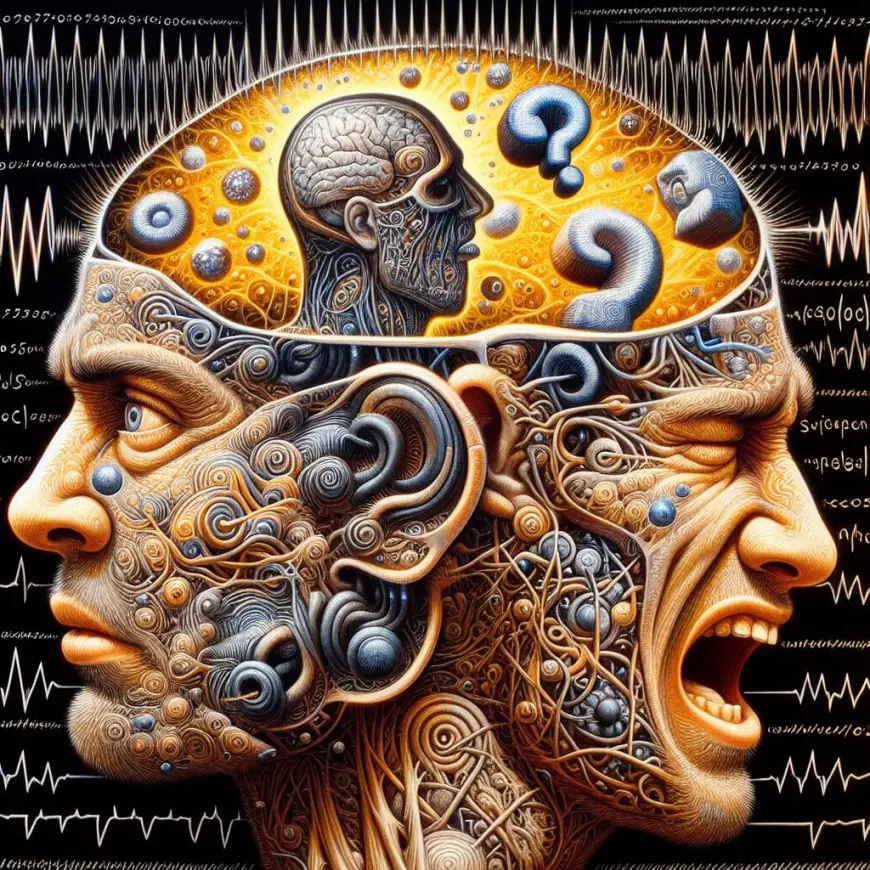Why do some sounds make us feel goosebumps and nervous?
Why does the sound of scribbling, scratching, and friction make people nervous and crazy? The scientific explanation.

Why Does the Sound of Scribbling, Scratching, and Friction Make People Nervous and Crazy also Feeling Goosebumps?
Introduction
Have you ever experienced that spine-tingling sensation when someone drags their fingernails across a chalkboard? Or perhaps the hair-raising discomfort when metal scrapes against metal? These seemingly innocuous sounds can evoke intense reactions, from mild annoyance to full-blown distress. But why? What is it about these auditory experiences that can make us feel so uneasy? In this article, we delve into the fascinating world of sound perception, exploring the science behind our visceral reactions to certain noises.
The Physics of Friction and Sound
Friction: Breaking Bonds and Vibrational Waves
To understand why certain sounds affect us so profoundly, let’s start with the basics: friction. When two surfaces come into contact and move against each other, friction occurs. But what exactly happens at the microscopic level? Imagine dragging your finger across a rough surface. As your skin encounters tiny bumps and irregularities, bonds between the atoms on both surfaces break and reform. Each time these bonds break, vibrational waves ripple through the material. These waves propagate as sound—audible vibrations that reach our ears.
The Stick-Slip Phenomenon
One intriguing phenomenon related to friction-induced sound is the “stick-slip” effect. Picture a rubber sole sliding across a wooden floor. Initially, the rubber grips the surface (the “stick” phase), but eventually, the force overcomes the friction, causing a sudden slip. This abrupt release generates a characteristic sound—the squeak of sneakers on a gym floor or the screech of a car tire during sudden braking. Stick-slip behavior occurs in various contexts, from musical instruments (like violin strings) to everyday objects (like sliding doors). The irregular, jerky motion produces distinct sound patterns that can trigger discomfort.
The Brain’s Role in Sound Perception
The Amygdala and Emotional Responses
Our brains play a crucial role in how we perceive and react to sounds. The amygdala, a region associated with emotions, memory, and survival instincts, becomes highly active during auditory processing. When we hear certain sounds, the amygdala interprets them as potential threats. This rapid assessment triggers emotional responses, such as anxiety, fear, or irritation. Interestingly, the same brain region also processes visual information. So, when we witness someone scratching a chalkboard, our brain combines the auditory input with the visual cue, intensifying our discomfort.
Mismatch Between Perception and Reality
Sometimes, our brains play tricks on us. Take the classic example of fingernails on a chalkboard. The sound itself isn’t inherently harmful, but our brains perceive it as such due to its association with unpleasant experiences. Our visual system reinforces this perception—seeing someone scrape a chalkboard amplifies the discomfort. This conflict between what our brain tells us and what we see causes the acute discomfort brought on by these sounds.
Individual Variability and Misophonia
Why Some People Are More Sensitive
Not everyone reacts the same way to these sounds. Some individuals are more sensitive due to factors like genetics, past experiences, and individual brain wiring. For those with misophonia—a condition characterized by intense emotional reactions to specific sounds—the distress can be overwhelming. Whether it’s the sound of chewing, tapping, or scraping, misophonia sufferers experience heightened anxiety and even rage. Understanding this variability sheds light on why some people cringe at chalkboard screeches while others remain unfazed.
Conclusion
In summary, the sound of scribbling, scratching, and friction affects us on multiple levels—physically, emotionally, and perceptually. From the physics of friction to the brain’s intricate processing, these seemingly mundane sounds have a profound impact. So, the next time you feel that shiver down your spine, remember that it’s not just your imagination—it’s science at work, revealing the fascinating interplay between our senses and our minds.
Now, armed with this knowledge, you can appreciate the complexity of everyday sounds and perhaps find solace in the fact that you’re not alone in your aversion to certain noises.
What's Your Reaction?








































